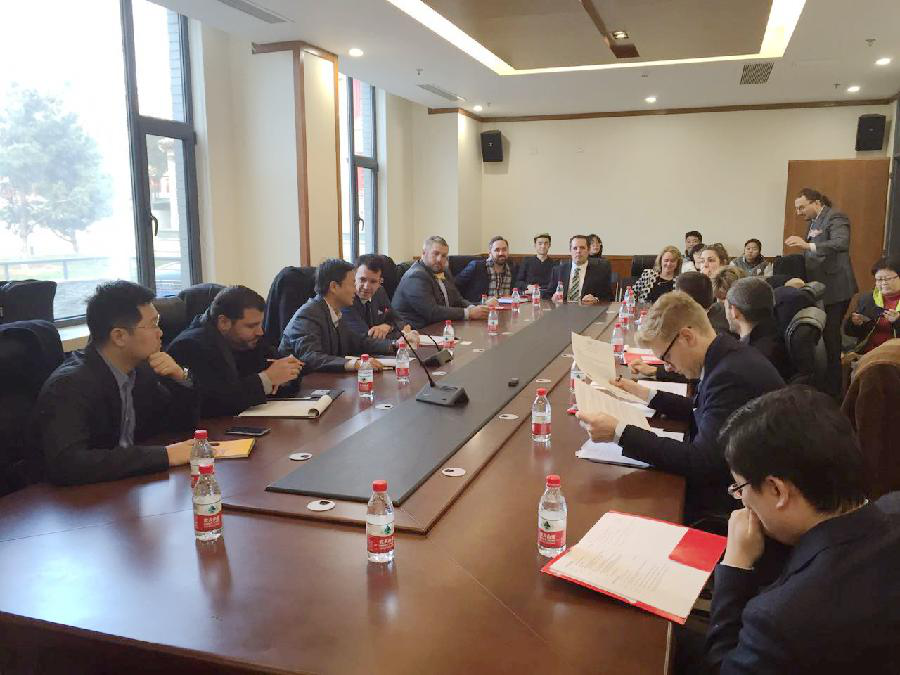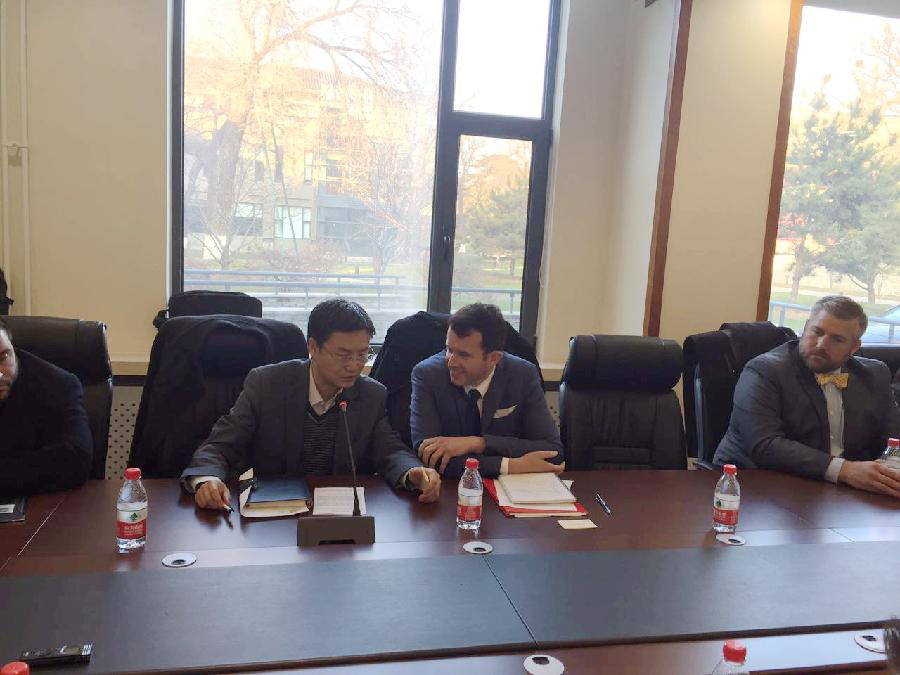At 15:15-17:00 on December 14, 2015, invited by the Institute for Global Cooperation and Understanding, Peking University (iGCU) and the American Studies Center, Peking University, the National Committee on United States-China Relations (NCUSCR) led a delegation of senior congressional staff members to visit School of International Studies and had a symposium with teachers and students at C105. The visit was organized by the NCUSCR and received by the Foreign Affairs Office of the NPC. The main members were state office directors or district directors at the state and city levels of the 11 congresspersons from the Democratic Party and the Republican Party. This was the first visit to China for most of them. The symposium was presided over by Professor Zhang Haibin from School of International Studies, Peking University. Professor Liu Lianlian from our school, some students from Renmin University of China and Central Conservatory of Music, and several doctoral students and postgraduates from our school attended the symposium.

Professor Zhang Haibin first extended welcome to the guests and, at the suggestion of the U.S. side, commented briefly on the Climate Conference in Paris, which he attended. Professor Zhang thought the signing of the Paris Agreement was a tremendous advance. It was a good example of the international community's ability and willingness to effectively govern international issues. If the international community can work together to address climate change, other international challenges can also be coped with. The conclusion of the Agreement also sent a clear signal to the world: As the United States has said, we are more confident and more likely to achieve our ultimate goal. Professor Zhang also stressed that the Paris Agreement cannot be reached without the joint leadership of the leaders of China and the United States. Then, senior congressional staff members consulted our faculty and students on China's pressure under the Paris Agreement, and Chinese Government's views on the TPP and attitude towards ISIS. Our faculty and students also exchanged views with the delegation on the current situation of the 2016 presidential campaign and the legitimacy of the expansion of the power of the United States Federal Government. The U.S. side also learned about the attraction of international students to Peking University and affirmed the important role of international students in China-U.S. people-to-people exchanges.

The symposium was the last official event of the delegation's trip to China. The U.S. side expressed that the symposium helped U.S. senior congressional staff members better understand China, its relations with the world and China's conducive work for the stable development of China-U.S. relations. Finally, the U.S. side expressed its hope to maintain exchanges with the School of International Studies to jointly promote the development of China-U.S. relations.
